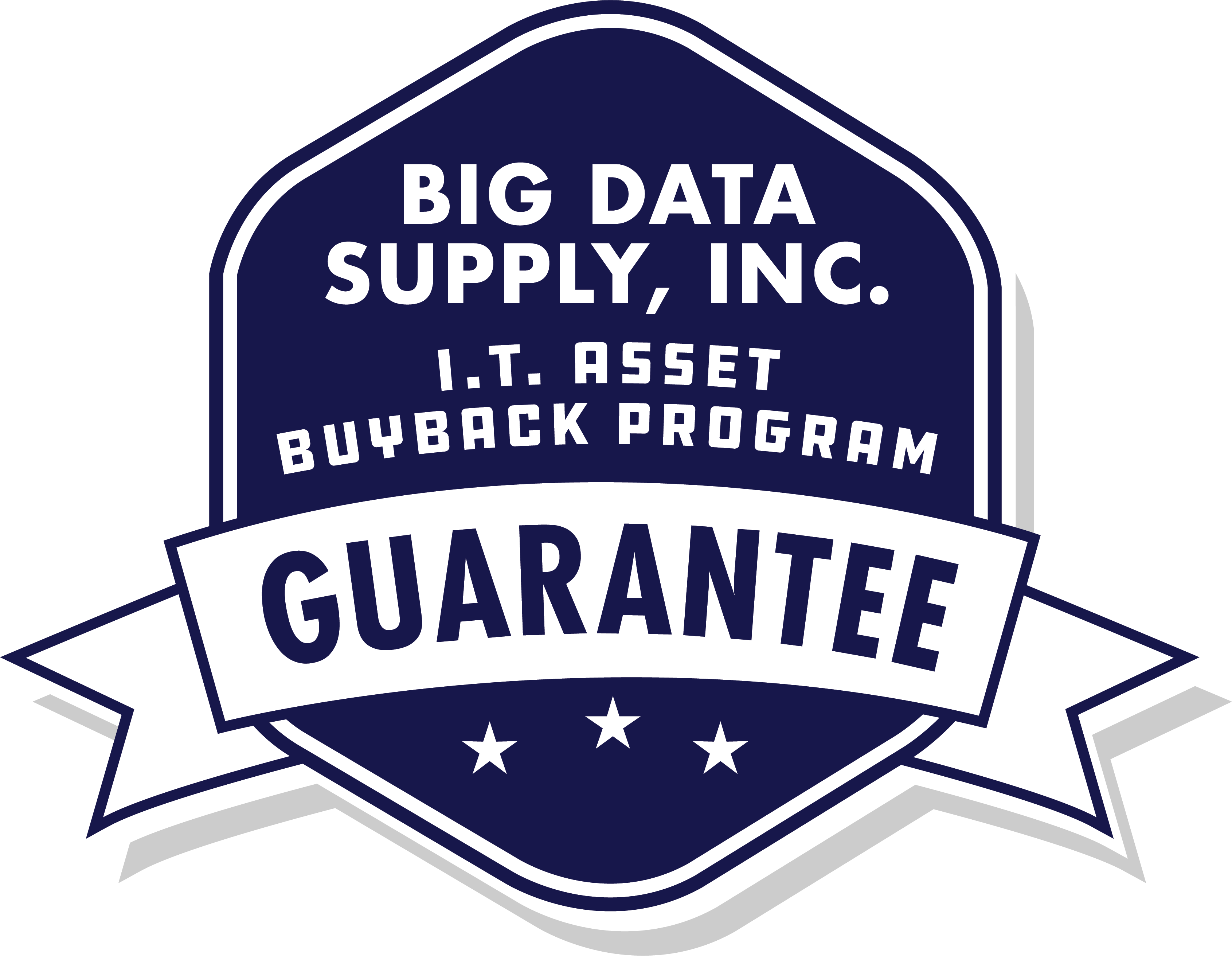Frequently Asked Questions
What can I do with my used data tapes?
If you have used data tapes and are wondering how to dispose of them, you have several options. These options not only help you manage your old data tapes efficiently but also contribute to environmental sustainability.
Firstly, one of the most practical options is recycling. Data tapes contain materials that can be reclaimed and reused, making recycling an eco-friendly choice. Many specialized companies offer secure data tape recycling services, ensuring that your data is destroyed in compliance with legal and environmental standards.
Another option is to repurpose the tapes. If the tapes are in good condition, they can be reused for data storage, either within your organization or by donating to a smaller business or educational institute that could benefit from additional storage media.
Selling your used data tapes is also a viable option, particularly if they are in good condition and of a type still in demand. You can sell used data tapes to companies like Big Data Supply, offering you a way to recover some value from your old equipment. We ensure that all data tapes you sell us undergo a thorough data destruction process, guaranteeing the security of any sensitive information previously stored.
Lastly, if your data tapes are damaged or obsolete, proper disposal is crucial. Look for a certified e-waste disposal service that handles data tapes, ensuring safe and environmentally responsible disposal.
Whether you choose to recycle, repurpose or sell used data tapes, each option offers a responsible way to handle your outdated or surplus media while keeping data security and environmental sustainability in mind.
What types of data tapes do you accept?
At Big Data Supply, our aim is to cater to a wide array of data storage needs, which is why we accept a wide range of data tapes. Understanding the diverse nature of data storage technologies and their evolution over the years, we ensure that our services cover a broad spectrum of data tape formats.
You can sell us various types of magnetic data tapes including, but not limited to, LTO (Linear Tape-Open) formats ranging from LTO-1 to the latest LTO generations. Additionally, we handle DLT (Digital Linear Tape), SDLT (Super DLT), and DAT (Digital Audio Tape) formats, which have been commonly used in different data storage capacities and environments.
Our services also extend to enterprise-level tape formats such as IBM 3592, 3480, 3490, and 3570 tapes, as well as Oracle StorageTek T10000 and various other 9-track reel tapes. These tapes are often used in larger corporate or institutional settings for extensive data archiving and backup solutions.
Furthermore, we accommodate AIT (Advanced Intelligent Tape) and SAIT (Super AIT) tapes, which are popular in certain industries for their high capacity and compact size.
You can sell data tapes to Big Data Supply, encompassing both older and modern technologies. Our goal is to provide a flexible and comprehensive solution for businesses and individuals looking to sell used data tapes, regardless of the format or generation.
How do I determine the value of my used data tapes?
Determining the value of your used data tapes involves considering several key factors, which help in assessing their current market worth. At Big Data Supply, we evaluate data tapes based on criteria that ensure a fair and transparent valuation for your equipment.
One of the primary factors is the type and generation of the data tape. Different types, such as LTO, DLT, SDLT, and others, have varying values based on their storage capacities and technological advancements. Newer generations typically retain more value due to their higher utility in current data storage solutions.
The condition of used data tapes you sell us is another crucial aspect. Tapes that are well-maintained, with minimal signs of wear and tear, and are free from physical damage, often fetch a higher value. The presence of original packaging and documentation can also positively impact the valuation.
The brand and model of the data tape can influence its value as well, with certain brands or models being more sought-after in the secondary market for their reliability and performance reputation.
Market demand and current trends in data storage technology also play a significant role. The need for specific types of data tapes can fluctuate, affecting their resale value.
To get an accurate valuation for used data tapes you want to sell, you can contact us directly at Big Data Supply. Our team of experts will assess your tapes based on these factors, providing you with a competitive and fair quote. This assessment is obligation-free, ensuring you have complete information to make an informed decision.
Is there a minimum or maximum quantity of data tapes I can sell?
At Big Data Supply, we understand that our clients' needs vary greatly, which is why we have a flexible approach when it comes to the quantity of data tapes you can sell to us. Whether you have a small number of tapes from a personal collection or a large bulk from a business upgrade or data center clearing, we are ready to accommodate your sale.
For individuals or small businesses with a limited number of data tapes, we offer a straightforward and easy process. Even if it's just a single tape, we value your decision to choose us for selling your equipment and ensure that your experience is as seamless and efficient as our bulk handling processes.
On the other hand, for larger organizations looking to sell used data tapes in bulk, we have the capacity and expertise to manage large-scale transactions. Our team is experienced in handling significant volumes, providing comprehensive support right from valuation to the logistics of handling bulk sales. This is part of our commitment to serving a diverse client base, encompassing individual users, small businesses, and large corporations alike.
In summary, regardless of the number of data tapes you wish to sell, there is no minimum or maximum limit at Big Data Supply. We strive to provide a hassle-free selling experience, ensuring that all our clients, regardless of the scale of their sale, receive the best service and value for their used data tapes.
What are data tapes used for?
Data tapes (also called "backup tapes", “media tapes” or "storage tapes") are a type of storage technology that utilizes magnetic tape to store data.
As you might have guessed, data tape is a fairly old storage technology, even older than computers. While in the past, data tapes were quite commonly used in personal computers, by the 1980s and 1990s, personal use of data tapes was largely abandoned in favor of more customer-friendly technologies like the CD-ROM (rather, DVD-ROM) and internet-based (cloud) storage.
However, large data tapes are still widely used within enterprises, especially as a part of the HSM (Hierarchical Storage Management) practices.
HSM dictates that data (files and assets) must be moved from more expensive to less expensive storage media, and data tapes offer lower cost per byte of storage when compared to other storage technologies, especially HDDs and SSDs.
Are data tapes still used?
Despite the introduction of newer storage technologies like NVMe SSDs, as well as the rising popularity of cloud storage solutions, data tape (also called "backup tape" or just "storage tape'') remains a popular storage technology.
The data tapes are considered the most cost-effective technology for storing large inactive data. Data tapes offer bigger storage capacity when compared to hard drives (even more, SSDs) at a similar price. The latest generation of LTO (Linear Tape-Open) Ultrium (a popular data tape model) can now hold a whopping 18 terabytes of data in just a single tape cartridge.
A data tape, however, has a slower transfer rate than hard drives and especially SSDs, so it is more geared towards storing inactive data rather than critical data used in day-to-day operations that require frequent data transfers.
Also, data tapes are relatively easier to maintain and are more durable/reliable than standard hard drives. They are relatively compact (easy to store and transport) and cool faster than other types of storage devices.
Where can I sell my used data tapes?
While your options may vary depending on the type of data tapes you are planning to sell, your location, or other factors, basically, you have three major options in selling used data tapes or other types of IT equipment:
1. Finding your own buyers on peer-to-peer marketplaces (like eBay). In this option, you have the most freedom in setting your prices and terms in selling your data tapes, but it can be difficult to find the right buyer willing to purchase the goods at your terms. Also, since data tapes are mainly used in enterprise usage, finding buyers in this type of marketplace can be quite challenging.
2. Listing your storage tapes for sale on classified sites like Facebook Marketplace, Craigslist, or even Amazon. It's typically easier to find buyers on these platforms when compared to on peer-to-peer marketplaces, but you'll have less freedom in setting your prices and terms.
3. Selling tape drives to specialist IT Asset Disposition (ITAD) companies that will take the data tapes off your hands. The easiest and quickest option and you can still sell data tapes at a fair market price. If your data tape contains sensitive/regulated data, these ITAD companies will also perform secure data eradication for you.
How to clean data from media tapes?
Ensuring the secure destruction of your data from data tapes before selling them is crucial for maintaining data privacy and security. There are several effective methods to securely wipe data from your tapes.
Data Degaussing: This is a widely recommended method for data tapes. Degaussing involves using a powerful magnet (degausser) to disrupt the magnetic field on the tape, thereby erasing all data. It's important to note that degaussing should be performed using a degausser that is strong enough for your specific type of tape, as different tapes have different coercivity levels.
Overwriting: Another method is to overwrite the data on the tape. This process involves writing new data over the entire length of the tape, effectively erasing the previously stored information. It's crucial to ensure that the tape is overwritten from end to end, so you can sell used data tapes safely.
Physical Destruction: If the tapes are damaged or you prefer not to reuse them, physical destruction is an option. Specialized services can shred or pulverize the tapes, making data recovery impossible. However, this method is not environmentally friendly and should be used as a last resort.
Professional Data Erasure Services: If you are not equipped to perform degaussing or overwriting yourself, consider using a
secure data erasure service. These services ensure that your data is securely erased, adhering to legal and industry standards.
Remember, regardless of the method you choose, it's essential to verify that all data has been completely erased before you sell used data tapes. This not only protects sensitive information but also ensures compliance with data protection regulations.
Do I need to delete data from old data tapes before selling?
If your data tapes contain sensitive and/or regulated data, then you'd want to securely delete this data from old data tapes to protect your company's (and your customer's) data privacy.
Depending on your industry and/or location, securely deleting data from your data tapes may be a legal requirement. If you sell used data tapes without ensuring secure data eradication, you may risk facing legal repercussions, and you may also lose your organization's compliance with relevant regulations (i.e., PCI-DSS). If your data is recovered by hackers or cybercriminals, you may also risk ruining your reputation.
A viable and secure option is to sell tape drives to specialist ITAD (IT Asset Disposition) companies.
ITAD companies like Big Data Supply inc. will ensure that the data stored within your data tapes are completely and securely eradicated. Certified/accredited ITAD companies will also give you a Certificate of Data Destruction after purchasing your data tapes.
Depending on your industry and local regulations, a Certificate of Data Destruction may be considered a legal requirement.




